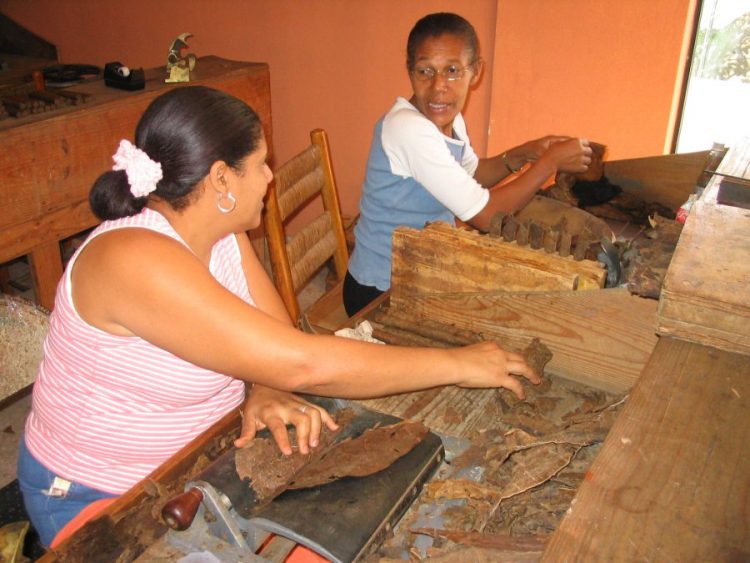Specialists from Latin America and Europe exchanged international experiences on policies, programmes and actions to promote business and the formalisation of employment and the social protection of workers in key informal sectors, including domestic work, transport and trade. The discussion was organised by the EUROsociAL+ Programme with the coordination of the IILA within the framework of the initiatives it promotes in the area of social policies.

The European Union EUROsociAL+ Programme is supporting the Dominican Republic Ministry of Employment and the Ministry of Economy, Planning and Development in designing the National Employment Plan and the proposal for a public policy programme to reduce informal employment and increase the social protection of working people. Within this context, this space was organised to facilitate exchanges between specialists from Europe and Latin America regarding their experiences relating to formalisation in key informal sectors including trade, transport and domestic work.
The discussion was opened by Gianluca Grippa, the European Union Ambassador to the Dominican Republic, who highlighted the importance of the country’s efforts in creating public policies aimed at improving the quality of life of the most vulnerable population. In his opinion, the complexity of employment informality and the crisis caused by the pandemic require highly-coordinated responses in relation to production, regulation and employment matters. He recalled that EUROsociAL+ is supporting the Dominican Republic in three main areas: reviewing and structuring policies and programmes to move towards protecting and providing social assistance to working people; updating the National Employment Policy; and establishing policies to social protect informal workers and reduce informality in the labour market.
Miguel Ceara-Hatton, the Dominican Republic Minister of Economy, Planning and Development, stressed the fact that employment informality is a significant historical challenge facing the country, a structural problem related to an economic model that maintains sustained growth in sectors that do not create employment or that generate employment with little job security. According to Ceara-Hatton, moving toward employment formality is not an exclusively a procedural matter. The biggest drawback lies in the cost/benefit ratio for the business community, which does not consider it economically profitable.
In the preamble to the event, Marie-Laure Aristy, the Vice Minister of Employment Policies in the Dominican Republic’s Ministry of Employment, also took part, emphasising the impact that COVID-19 has had on employment, with increased informal employment rates and other collateral effects that have to be addressed, for example, in the field of mental health.
Six specialists in the field took part in the discussion. Cecilia Alejandra Tello, a representative of Peru’s Ministry of Work and Employment Promotion, explained the experience that led to the approval of a law to formalise domestic workers (Law 32047, the Domestic Workers Act), a process supported by EUROsociAL+. This law, which has been in force since October 2020, prevents and eliminates all forms of discrimination in the employment conditions of those who perform domestic work. In addition, the aim is to guarantee the fundamental rights of these workers and recognise their significant contribution to Peru’s social and economic development.
Tello added that, in addition to the law, a space for dialogue was created through a workgroup in order to prepare and monitor the Action Plan for compliance with the rights of domestic workers within the framework of the implementation of ILO Convention 189, contributing to improving these people’s working conditions.
The, specialist Julie Camposano Leyton presented the progress made by the Chilean Government’s SERCOTEC Programme, a technical cooperation service to improve the skills and opportunities of entrepreneurs in setting up and growing their businesses, providing them with financial support, advice, training, digitalisation and reactivation and reinvention.
As far as European experiences were concerned, Frédérique Leprince spoke to the meeting, he is a representative of the Directorate of International Relations in the Families Division of the French Social Security and he talked about the formalisation of the care sector in that country, especially childcare. Fabrizio Patriarca, a senior researcher at the Marco Biagi UniMoRE Department of Economics in Italy, spoke about the Emilia Romagna region and the qualification and regularisation of the care work carried out by family caregivers.
The event, which was held virtually, was attended by managers and officials from the Ministries of Employment, Economy, Planning and Development and other Dominican Republic institutions linked to the topic of the discussion.
The session can be seen on YouTube



